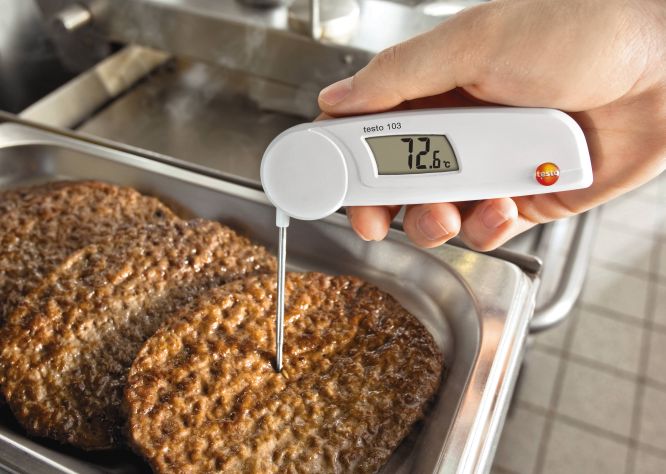
The humble thermometer. Who would have thought a simple device to measure changes in temperature would become one of the cornerstones of food and medical safety protocols? The earlier temperature measuring devices date back hundreds of years. Primitive thermoscopes were used by European scientists such as Galileo Galilei, who calibrated them to measure changes in temperature.
Since then, technology has advanced exponentially, and today's measuring devices eclipse their earlier counterparts in sophistication and accuracy. Consumers and business users have access to a wide range of incredibly precise and intuitive digital thermometers. These thermometers are capable of measuring temperatures between -50 and 300 degrees celsius.
But how do you know which is the right thermometer for your needs? First, you have to weigh up several factors. What environments will you be measuring in? What sort of goods will you be assessing? Is price a concern?
The first decision you'll need to make is if you need a surface, probe or an infrared thermometer. Here is a quick breakdown of the benefits and applications of each.
Surface Thermometers
Surface thermometers are designed to lie flat on a surface and take an accurate temperature reading of that object. They are designed to be portable, easy to use and are often very affordable. The Testo Mini Surface Thermometer offers a probe shaft length of 120 mm and a broad 15 mm measurement tip, making it perfect for measuring the temperature of any flat surface.
Because of the external nature of a surface thermometer, they are unsuitable for food preparation task that requires the measuring of internal temperatures. This means that they are unable to assess the safety of potentially hazardous foods like meat or dairy products.
In saying that, they are still great tools for measuring external temperatures of foods and cooking preparation surfaces, such as griddles, hot plates, and stovetops. There are also applications for surface thermometers in various other trades and industries.
Probe Thermometers
Probe thermometers are designed specifically for taking internal temperature readings. They are equipped with one or more sharp shafts that can easily be inserted into soft goods to assess the internal temperature of the object. This is a crucial tool when assessing meats and other foods that can have a drastically different internal and external temperature. While the temperature of the surface of the food may indicate that it is safe and not compromised, the internal temperature may be above or below the Australian New Zealand Food Standards Code's safe temperature range.
Probe thermometers come in various shapes and sizes. On one hand you have basic probe thermometers like Testo's Mini Food Thermometer. These are highly functional and can be purchased in bulk for day-to-day applications. On the other hand, we have instruments such as the Testo 108 - Waterproof T/C instrument, which is a more advanced probe thermometer that has an easily removable thermocouple probe that creates fast, accurate checks and easy cleaning and maintenance.
Infrared Thermometers
The differentiating factor between infrared thermometer and surface or probe thermometers is that they do not require surface contact to measure the temperature of any particular object or environment. Instead, they can take non-contact surface temperature measurements. This makes them highly versatile and offers a range of advantages over other devices.
For example, because they do not have to make contact with an object, users can take and assess temperature from a safe distance. The Testo 831 Infrared Thermometer is a great example of a highly accurate and reliable infrared thermometer that uses laser spot marking to pinpoint a location and take a precise temperature measurement of that area.
This technology was expensive and difficult to use in the past, but the Testo 831 Infrared Thermometer is a testament to how affordable and intuitive this technology has become.
If you are after any more information on thermometers, and which is the best solution for your business, contact the Testo team today!

